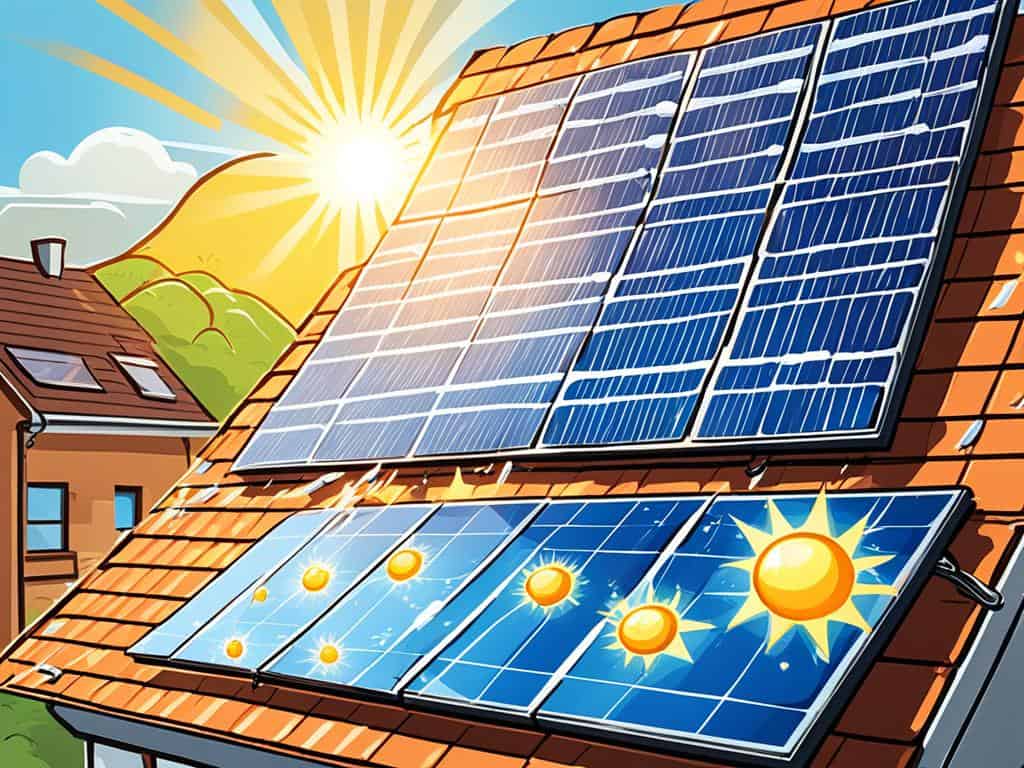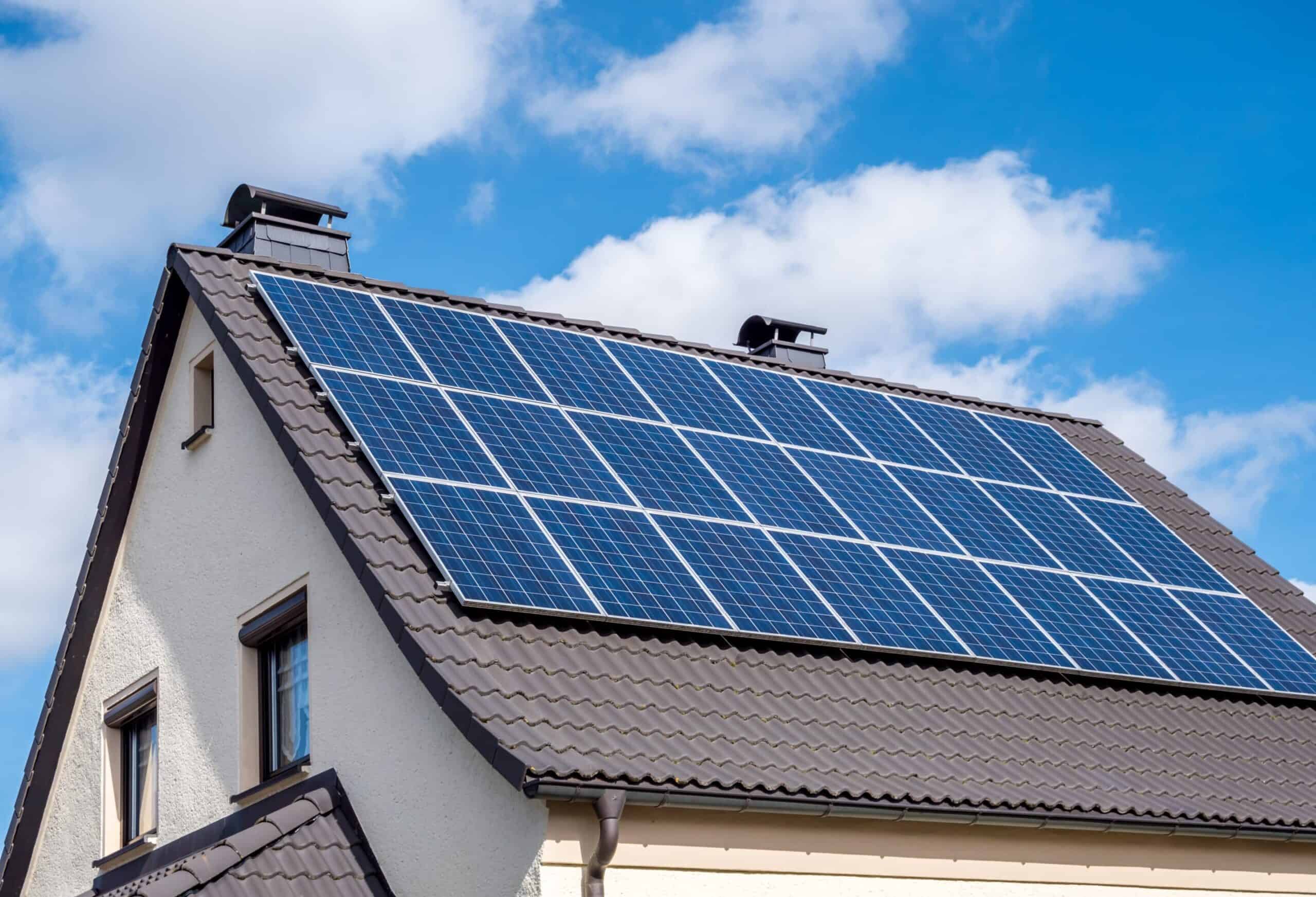Discover how commercial properties profit from Solar Panels as a renewable solution.
Make The Most Of Energy Financial Savings With High-Quality Solar Panels
Making best use of energy cost savings via making use of high-grade photovoltaic panels is a complex strategy that calls for mindful factor to consider of innovation, setup, and maintenance. Choosing high-efficiency alternatives, such as monocrystalline panels, can considerably improve electricity generation, while sturdiness and service warranty terms play a crucial duty in long-term monetary stability. Understanding the potential for government motivations can magnify the return on financial investment. Nevertheless, the journey does not end with the acquisition; the nuances of installment and continuous maintenance are similarly vital to achieving ideal results. What aspects should home owners prioritize to guarantee they understand these benefits completely?
Advantages of Solar Power
The advantages of solar energy are numerous and substantial, making it an increasingly attractive choice for both domestic and industrial applications. One of the key advantages is its prospective to reduce electricity expenses. By harnessing sunlight, residential property proprietors can create their own power, lowering reliance on standard energy sources and ultimately resulting in significant financial savings.
Another critical benefit is ecological sustainability. Solar power is a tidy, renewable energy that assists to minimize greenhouse gas exhausts, adding to a reduction in air pollution and climate change. This lines up with worldwide initiatives to transition in the direction of even more lasting energy remedies.
Furthermore, solar power systems can increase home value. Residences and businesses outfitted with photovoltaic panels commonly have higher resale worths, appealing to environmentally-conscious customers and capitalists. Federal government motivations, such as tax credit histories and discounts, can counter installment expenses, making solar power even more monetarily viable.
Finally, solar modern technology advertises energy self-reliance. By buying solar power, people and services can lower their vulnerability to fluctuating power prices and supply interruptions, fostering better control over their power sources. Jointly, these benefits underscore the engaging factors to consider solar power options.
Choosing the Right Solar Panels
Picking the appropriate solar panels is a critical action in optimizing the efficiency and advantages of a solar power system. When assessing solar panels, several variables need to be thought about to make sure optimal performance and lasting savings.
First, examine the panel's effectiveness rating, which indicates how efficiently it converts sunshine into electricity. Higher efficiency panels may have a higher in advance cost yet can create even more power in restricted space. Next, analyze the warranty used by the manufacturer; a much longer service warranty usually mirrors a higher level of self-confidence in the item's durability and efficiency.
In addition, take into consideration the type of solar panel innovation. Monocrystalline panels are recognized for their high effectiveness and space-saving style, while polycrystalline panels often tend to be much more cost effective yet somewhat much less effective. Bifacial panels, which catch sunshine from both sides, are likewise getting popularity for their prospective to enhance power outcome.
Lastly, perform an extensive review of independent efficiency ratings and consumer reviews to determine integrity and contentment. By very carefully thinking about these elements, house owners can make enlightened choices that align with their power needs and financial purposes, ultimately boosting the return on financial investment for their solar power systems.
Understanding Setup Costs
Recognizing the expenses linked with mounting solar panels is vital for homeowners aiming to buy renewable resource. The total installment price can differ dramatically based upon numerous aspects, consisting of system dimension, panel type, installation complexity, and geographic area.
Typically, the cost is relied on a per-watt basis, with ordinary costs ranging from $2.50 to $3.50 per watt before any motivations. A typical household system could cost in between $15,000 and $25,000, relying on energy why not try here needs and the picked parts.
Along visit homepage with the panels themselves, property owners should take into consideration expenditures connected to inverters, mounting equipment, and electrical upgrades. Labor prices likewise play an important function, as expert installation ensures conformity with safety criteria and regional regulations.

Inevitably, comprehending these installment costs and prospective economic benefits is crucial for property owners to make enlightened decisions regarding transitioning to solar power.

Maintenance for Long-Term Financial Savings
Maintaining solar panels is critical for taking full advantage of lasting energy savings and making sure the system runs at peak efficiency. Regular maintenance entails numerous vital practices that can substantially boost the long life and performance of solar installations.
First, routine assessments must be performed to identify any physical damage or wear, such as fractures or loose connections. Cleaning up the panels is additionally important, as dust, dirt, and debris can obstruct sunlight, decreasing energy outcome (Solar Panels). It is a good idea to clean up the panels at the very least two times a year, or a lot more regularly in locations with high degrees of dust or pollution
Additionally, keeping track of the system's performance with a monitoring software can offer real-time data on energy manufacturing and sharp home owners to any kind of abnormalities. This positive technique enables timely repairs, decreasing downtime and keeping optimum energy generation.
Environmental Impact of Solar Power
The ecological effect of solar energy extends much past its immediate advantages of lowering electricity costs and dependence on nonrenewable fuel sources. By harnessing sunshine, solar power considerably lowers greenhouse gas exhausts, consequently reducing environment modification. Unlike conventional power sources such as coal or gas, solar energy generation does not generate air pollutants, adding to enhanced air quality and public wellness.
Additionally, solar energy advertises biodiversity by reducing the demand for nonrenewable fuel source removal, which typically disrupts ecological communities and habitats. By transitioning to renewable resource sources, we can maintain natural landscapes and safeguard threatened varieties from environment loss.
The life cycle of solar panels likewise provides a reduced environmental impact contrasted to conventional power sources - Solar Panels. While making moved here solar panels includes some source use and discharges, advancements in innovation and reusing processes are continuously lowering these impacts. Furthermore, the lasting benefits of solar energy-- such as minimized dependence on finite resources-- far surpass these first costs
Conclusion
In summary, the adoption of top quality solar panels presents significant opportunities for energy financial savings and ecological advantages. By choosing proper innovations, such as monocrystalline panels, and making sure effective setup, property owners can enhance power generation in limited spaces. Additionally, recognizing installment expenses and maintenance requirements even more adds to long-lasting financial savings. The tactical alignment of solar panel choices with power demands and federal government rewards enhances return on investment, advertising sustainability and minimizing reliance on conventional energy resources.